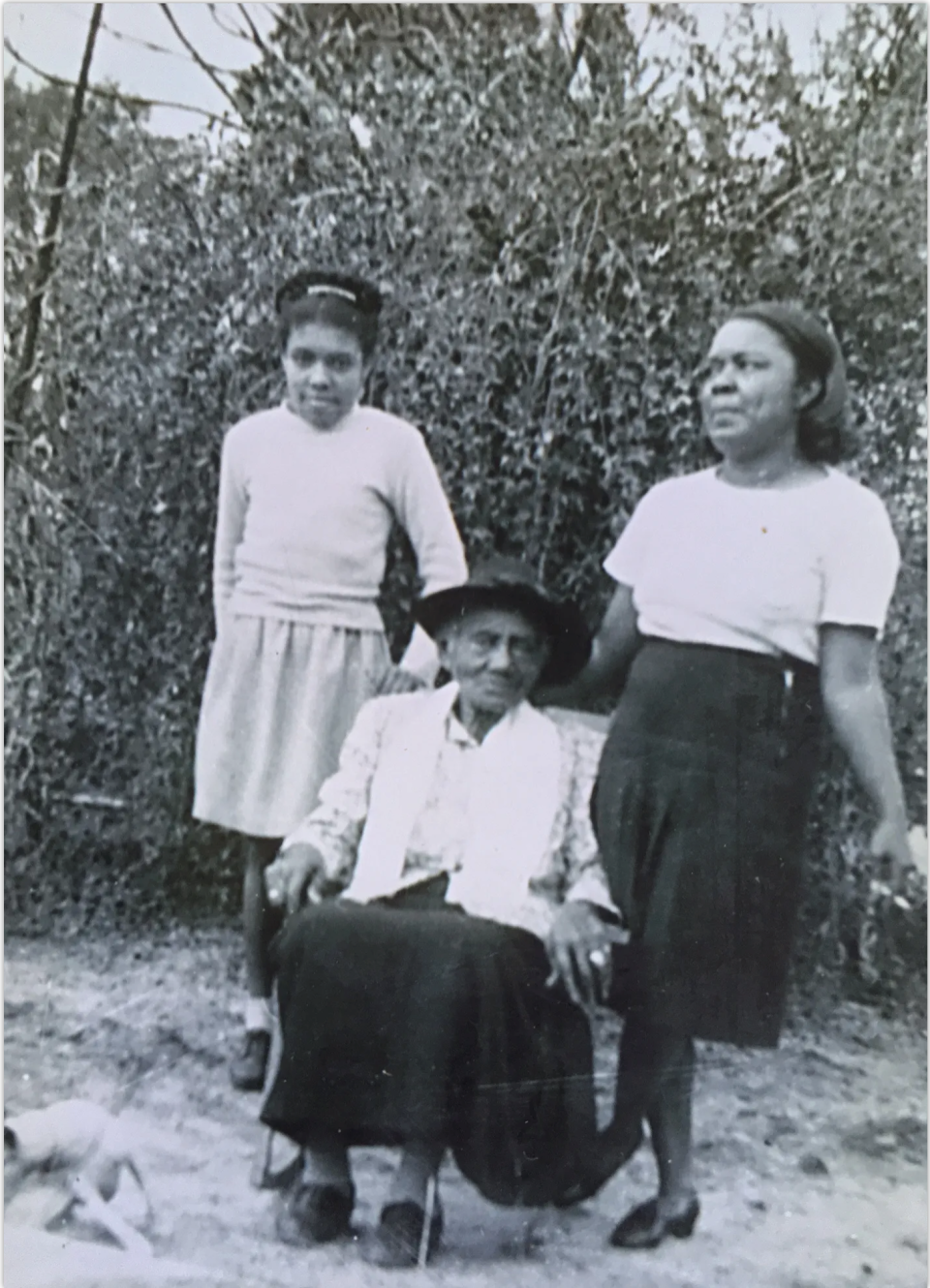Righting the past: Jennie Huggins, namesake of beloved swimming hole, dies at 84
Editor’s note: This is the fifth in a series of historical obituaries written today to honor the men and women of the past who were denied the honor at the time of their death because of discrimination due to their race and/or gender.
Born in 1865 in the small town of Perote, Alabama, Jennie Huggins died in 1949 at the age of 84 in Pensacola.

Described as a formidable presence, Mrs. Huggins towered close to six feet tall. She was a ubiquitous presence in the Brent and Goulding communities where she lived, worked, and walked – often barefoot – between her home, Carpenter's Creek, and New Hope Baptist Church, the church she co-founded with Will Young in 1922. Today, March 12, 2023, New Hope Missionary Baptist Church celebrates its 101st anniversary.
When she was eighteen years old, Jennie Hudgins married Fred Huggins. In 1901, they purchased a 10-acre tract of land in Brent. Their densely wooded property fronted Carpenter’s Creek and contained a modest two-room wooden shack. The Huggins family turned their creekfront homestead into a vibrant community space for Black and White members of their sparsely populated rural community.
Righting the past:Their history wasn't just forgotten, it was buried. Today we tell their stories.
Righting the Past: James Goldstucker, famed baseball manager and businessman, dead at 75
As the area’s population grew, Mrs. Huggins and her family thrived. In the 1920s and '30s, they hosted summer outings by city summer camps and managed a gun club for members who shot clay pigeon decoys. Over time, the creek’s deep water along the eastern edge of their property became known as “Aunt Jennie’s Swimming Hole.”
By 1930, Mrs. Huggins, now widowed, headed a household that included her daughter, Minnie; son-in-law, Sim Dawson; and Minnie and Sim’s four children, Janie, William, Fred, and Doris. William, Fred, and Doris attended school. Mr. Dawson worked as a laborer in the nearby fertilizer factory. And as one of the only Black families in Brent, Mrs. Huggins and Mrs. Dawson made their living as washerwomen, collecting the clothes and linens of local White families and laundering them in the creek.
Mrs. Huggins was fondly remembered by those who knew her. In her poetry and prose reflections, Mrs. Huggins’s great-granddaughter, Ora Wills, recalls the piles of laundry boiling with creek water in black cast iron cauldrons near the family’s home. Former Pensacola resident Alfred Long (now deceased) recalled his time as a child growing up in the vicinity of the creek. Mr. Long and Mrs. Huggins's grandsons – William and Fred, respectively – would swim in the creek together, and she would bargain with them to help build a fire and carry laundry water. Neighboring White families referred to Mrs. Huggins as “Aunt Jennie,” a diminutive but affectionate nickname harking back to antebellum days when older Blacks were routinely referred to as “Aunt” and “Uncle.”
Righting the past: Rev. L. B. Croom, civil rights activist, dies at 73
Righting the past: War veteran and prominent citizen, John Sunday is dead at 86
In 1934, tragedy struck the Huggins-Dawson household. Around midnight on Sept. 3, 21-old William was shot in the back at close range on his nightly 1.5-mile walk home from work. At 5 a.m. the following morning, Mrs. Dawson found her son's body a quarter mile from their home, a handkerchief "tied about his face." Three men were arrested for murder following the incident, but they were later released. Dawson's murderer – or murderers – was never found. The family maintains that Mr. Dawson was a victim of racial violence.
Mrs. Huggins was known as “Mother” to the extended community of the New Hope congregation. With no dedicated house of worship for Black residents in the Brent or Goulding areas, she and Will Young established New Hope as a modest outdoor “brush arbor” with four posts as a frame and a roof of palmetto fronts and tree branches. They invited friends and neighbors to Sunday service, all the while focused on building a more permanent home.
Mrs. Huggins walked the red clay roads between Brent and Goulding, knocking on doors and tirelessly soliciting funds from community members. “She never met a stranger,” recalls Mable Brown, who attended the outdoor worship services as a child and was baptized in the creek during the 1930s.
Brown recalls Mother Huggins organizing the hundreds of baptisms in "Aunt Jennie's Swimming Hole." Towels, robes, and head coverings were transported to the creek on the first Sunday of every month. Church members gathered for an afternoon of song and worship that culminated with new church members taking the ceremonial backward plunge into the cold creek water, assisted by the minister and observed by friends and family gathered on the banks.
Jennie Huggins died on November 20, 1949, after a brief illness at home. The location of her grave is unknown.
Following her death, Jennie’s family and the Black community soon lost access to the creek and the community space that bore her name. Jennie’s sole surviving heir, her daughter Minnie, sold the eight acres bordering the waterway to the Dolly Madison Development Company in 1956. Just seven residents lived in the surrounding 240 acres of woodland. The Black community was promised access to continue using the creek for baptisms and gatherings, but that commitment was soon abandoned. Construction crews cleared the trees, graded the land, and built the Spring Hill subdivision for White residents in a rapidly growing post-war Pensacola. "Jennie's Hole" slowly silted in as run-off from construction sites and new developments up and down the creek remade the once pristine waterway.
In 2021, Jennie Huggins’s life inspired her great-great-granddaughter to establish Jennie’s Legacy, a nonprofit devoted to promoting the Black history of Carpenter’s Creek and advocating for the equitable restoration of the waterway and surrounding communities.
This article originally appeared on Pensacola News Journal: Righting the past: Jennie Huggins, namesake of swimming hole, dies

